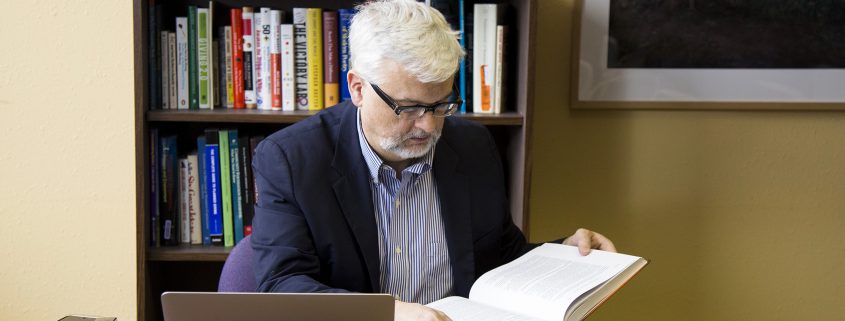Q: How many elephants will fit into a Minivan?
A: Four: Two in the front, two in the back.
Q: How many giraffes will fit into a Minivan?
A: None. It’s full of elephants.
Jokes aside, you can fit just about any asset into a trust. Here is a “short” list of assets actually placed into trusts:
- Airplanes
- Antique automobiles
- Antiques
- Artwork
- Assets held by C Corporation
- Assets held by S Corporation
- Autographed books
- Barn doors
- Beach house
- Beanie Babies
- Boats
- Bonds
- Books
- Bookstore
- Boxes
- Boxing gloves
- Broadway musical
- C Corporation stock
- Cheese shoppe
- Chocolate store specializing in “I love chocolate” t-shirts
- Chocolate store specializing in baking chocolate
- Chocolate store specializing in bars of chocolate
- Chocolate store specializing in candy-coated chocolate
- Chocolate store specializing in chocolate and almonds
- Chocolate store specializing in chocolate mixed with peanut butter
- Chocolate store specializing in couverture chocolate
- Chocolate store specializing in dark chocolate
- Chocolate store specializing in milk chocolate
- Chocolate store specializing in organic chocolate
- Chocolate store specializing in hot chocolate
- Chocolate store specializing in liqueurs chocolate
- Chocolate store specializing in semi dark chocolate
- Chocolate store specializing in sweet chocolate
- Chocolate store specializing in white chocolate
- Chocolate store* (You’re now probably quizzically asking, “Should I send Gordong chocolate?”)
- Coin collections
- Comic books collection
- Commercial and residential real estate
- Condominiums
- Credit card rebates
- Cupcakery
- Depression-era glass
- Dolls
- Enamelware
- Equestrian ribbons
- Farmland
- Ghosts
- Gold bullion
- Grain
- Guitars
- Hedge fund carried interest
- Historic papers
- Installment notes
- Intellectual property
- Law firm
- Life insurance
- Limited liability partnerships
- Livestock
- Marbles
- Mineral rights
- Monica (my wife)
- Moonstone
- Music store
- Mutual funds
- NHL team
- Oil and gas interests
- Olives
- Operating partnership units
- Paint-by-number landscapes
- Painted planks
- Paintings
- Patents
- Photographs
- Pickles
- Pooled income funds
- Racehorses
- Real estate
- Restaurant
- Restricted stock (144 and 145)
- Retained life estate
- Retirement benefits
- Royalties
- S Corporation stock
- Sculpture
- Sculpture garden
- Sea urchins
- Seat on New York Mercantile Stock Exchange
- Seats at events
- Snow globes
- Soda pop bottles
- Spirits of the damned
- Stamp Collection
- Stocks
- Tangible personal property
- Taxidermy
- Teddy bears
- Timber deeds
- Vacation home
- Vehicles
- Violin
- Wines
*Yes, this is a cry for help. I love sweets, especially chocolate, way too much.
Why put assets in trust?
There can be many reasons to use a trust, and specific benefits can accrue from specific trusts. In general, there are four great reasons to initiate a trust.
1. Save money
Using a trust, you avoid probate, which can save you lots of money. Probate will generally take two percent-plus of your estate, and even “just” two percent of your entire estate can add up to a lot of money. Avoiding probate also helps you avoid fees, costs, and taxes.
2. Save time

Using a trust, you avoid probate, which can save you lots of time. Going through probate, even here in Iowa, can take several months, to a year, or even more. Your heirs and beneficiaries may not receive their inheritances until the end of this probate process. Again, with trusts, you bypass probate. With trusts, your beneficiaries can get their inheritances in mere days, or weeks, rather than several months.
3. Flexibility of distributions
Don’t want your 18-year-old to inherit half-a-million dollars in one fell swoop? I agree it’s not a good idea. Trusts offer flexibility for the payout of inheritances. You set the ground rules of when and how distributions are made. For example, you might decide your children can receive distributions at certain ages. (For example, one-third at age 25, one-third at age 30, and the remaining at age 40). Or, you might decide your children can receive distributions at the attainment of certain milestones, such as marriage, the birth of a child, buying a first home, or receiving a certain degree
4. Privacy
Probate proceedings are public. Your will, once you pass and it is filed in court, is a public record. Some desire privacy about financial matters (say, about their family business) even after death.
Also, privacy can prevent hurt feelings among family members. For example, do you really want your Cousin Joe to know he received significantly less than all the other cousins?
What are the drawbacks to a trust?
It’s more expensive to set up a trust than basic estate plan documents, although I would say those costs are greatly outweighed by the money you’ll save your estate in the end. It’s also a bit of an administrative hassle, as your assets (such as car, house, stock funds, etc.) have to be retitled in the name of the trust. Again, though, I believe this inconvenience is much outweighed by the smooth operation of a trust at death.
Let’s talk about trusts!
Have an asset that didn’t make the list of 101 items? It can probably still go in a trust (even if it isn’t chocolate related!). Sometimes it’s hard to know if a trust may be right for your personal situation. It certainly doesn’t hurt to take me up on my offer for a free one-hour consultation. Give me a call at 515-371-6077 or shoot me an email at gordon@gordonfischerlawfirm.com.




















